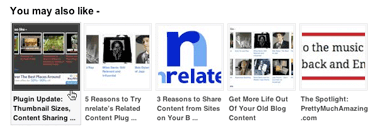We’re really fortunate to be able to share and learn from our peers about the WordPress platform’s latest developments and techniques. We recently attended WordCamp Montreal, one of the many local “un-conferences” on everything to do with WordPress.

At a WordCamp, advice typically ranges from beginner information to highly technical and specific aspects of the popular website content management system. It’s also a great place to meet people involved in Web development, design and content.
In this blog post, we review five of the interesting and useful things we heard at WordCamp Montreal on digital marketing.
1. “People don’t buy what you do, they buy why you do it.”
When it comes to selling someone on a product or an idea, it’s not “what”, it’s “why” that’s important, according to Internet marketing strategist Brian Rotsztein.
People believe in and trust the philosophy and ideas that drive the company.
He said in his WordCamp Montreal presentation that consumers have to believe in what’s behind the product. For instance, when Apple first started making phones people believed that they could create something great because people believe in their approach. People believe in and trust the philosophy and ideas that drive the company.
To really gain the trust of the public, it’s not good enough for a product to meet the specs required – the “why” needs to be answered. Your website or blog should endeavour to answer this question.
2. Use Google Adwords to See the Value of Keywords
 In his presentation, “SEO for WordPress”, CT Moore said you don’t have to pay any money to determine search volume and average cost-per-click (or CPC) using Adwords. As long as you don’t buy ads, you can use Adwords to determine these two important keyword parameters.
In his presentation, “SEO for WordPress”, CT Moore said you don’t have to pay any money to determine search volume and average cost-per-click (or CPC) using Adwords. As long as you don’t buy ads, you can use Adwords to determine these two important keyword parameters.
Search volume helps you determine which keywords most people are actually searching by seeing roughly how many people per month search a specific phrase.
The average CPC gives you a sense of the value of certain keywords. Ones that demand more expensive prices generally do so because they’re more valuable and get the best conversions. Even if fewer people search for the term, it could pay off because those making this search are more likely to be the desired visitor.
3. “If we write from the heart, we will be found”
The way Google finds relevant content for searches is constantly getting more sophisticated, Mark John Hiemstra said in his presentation “Stop Writing for SEO and Start Writing for your Audience”. Now, it’s less about creating keyword-heavy content for search engines than it is about providing something valuable and readable for people. When you write content about a topic, he says, Google will know.
People are increasingly finding sites through their online social circle via social network links.
Of course, it helps to be a good writer and employ practices like staying on topic, breaking content up into smaller sections using headings, and filling in image descriptions.
Also, it’s not just search engines that drive traffic to your website. People are increasingly finding sites through their online social circle via social network links. And visitors are likely to bypass the search and come back to your site if they find useful and reliable information. This is all reliant on creating content that is engaging to humans, not necessarily search engines.
Generally, if you know your topic, show passion, and be diligent, you will be rewarded.
4. Keep Visitors On-Site with Related Content

In his presentation on using Information Architecture to create great user experiences, Kobayashi Online’s own content guy David Hamilton explained the importance of suggesting related content to visitors no matter where they are on your website.
In order to make related content readily available, it’s important to make the site easily navigable by breaking the content into logical categories and sub-categories, and provide logical and consistent menus.
Of course, it also helps to put links to related content on individual pages and posts using the custom sidebars plugin, or automatically using a related content plugin.
People are often more likely to stay on your site when you give them suggestions of where to go next.
5. Give Webpages Titles
It sounds like a no-brainer to give webpages titles, but there are roughly 6 billion untitled pages on the web, said Laurie Rauch in her presentation on CSS and HTML coding. Given the competition, she reckons that these billions of pages will be overlooked in favour of ones that at least have titles.
Because page titles appear in the search results, they are an opportunity to makes your page or blog post sound unique and easy to differentiate from other search results. The title will often be a major draw for people coming to your site from search engines, so write one that’s descriptive and grabs the user’s attention immediately.
UK-based digital marketing consultant Modi Mann called page titles among the ”most powerful on-site search engine ranking factors” ignored by site owners. Using plugins like WordPress SEO by Yoast, you can have WordPress automatically generate titles, or you can create custom, optimized post titles for each page and post.
Don’t add to the growing number of pages that lack unique and interesting titles.
Those who come to a WordCamp event with an open mind will be able to benefit from the WordPress community’s knowledge and guidance. Come on out to WordCamp Toronto on September 29 and 30, 2012 to find out more about not only digital marketing, but also web design, content strategy, and more. We’d love to see you there!